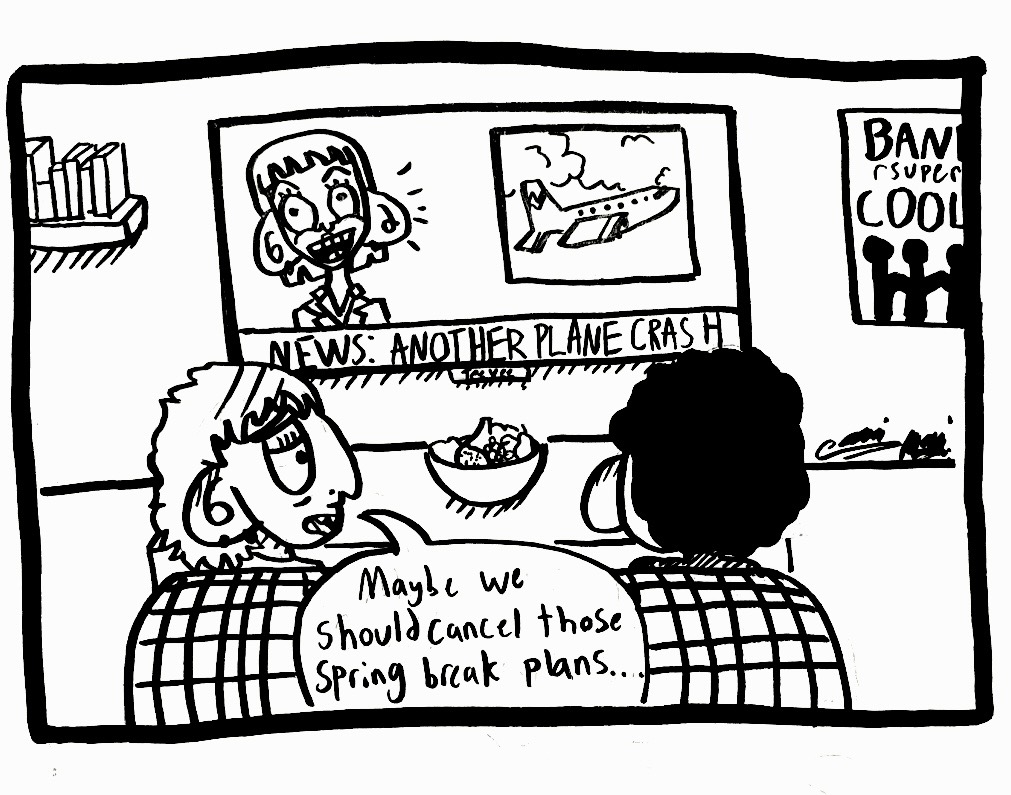Many students come to college with the goal of discovering who they are as individuals. Part of that discovery for queer students like myself comes with the territory of ensuring one’s health and safety above all else.
I’m making this assertion not to perpetuate antiquated stereotypes surrounding queer sexual activity but to underscore that HIV/AIDS is a real risk without care and proper proficiency in HIV/AIDS prevention. I would have hoped that the administrators overseeing the Colonial Health Center know this, but nevertheless, they have yet to use the wide array of tools in their arsenal to spread the word on prevention options and tactics.
Nearly 2 percent of D.C.’s population is living with HIV, though about 90 percent of those living with HIV are on remedial treatment making progress toward an undetectable viral load, meaning their viral load is so low that the virus cannot be spread to others.
Most queer college students come from high schools and families that don’t provide inclusive, interdisciplinary sexual education, as revealed by a qualitative study conducted by the Planned Parenthood Federation of America and Human Rights Campaign. The study found that LGBTQ+ youth received insubstantial or no sexual education that either mostly or completely centered around heterosexual relationships involving cisgender people. LGBTQ+ youth often seek inaccurate information about sexual health online or from peers, given the limited number of trusted adults in their lives, the study found. As the old saying goes, knowledge is power – with adequate knowledge, queer youth can advocate for themselves and pursue appropriate services and treatments.
When I started my college education at GW, in a city with the highest concentration of LGBTQ+ folks in the country, I felt hopeful. Hopeful of finding like-minded individuals and a community that supports and uplifts one another.
Last spring, while taking classes virtually due to the pandemic, I wanted to learn more about pre-exposure prophylaxis. This preventative drug, better known as PrEP, has been proven to reduce the risk of contracting HIV from sex by about 99 percent. While I was not living on campus, my first inclination was to browse the CHC’s website.
I swiftly typed “LGBTQ+” in the search bar and received a mere three search results. Under the Primary Care Services page, I found a section titled “LGBTQ+ Health,” which consists of five succinct bullet-points of itemized services, devoid of comprehensive information. Under the Medical Care page, PrEP is listed as an example of non-urgent health care provided by GW, with no further guidance on the drug. If you’re internet savvy, you might be lucky enough to land on a one-page PDF of tips and external resources for queer students from Counseling and Psychological Services. I arrived at the PDF by clicking on a hyperlink in the description of one of the three search results.
Unsatisfied by the lack of information published online, I called the CHC three times to learn more. After being stuck on hold for nearly an hour each call, I was directed to make an appointment. Living at home at the time, the idea of taking a virtual appointment that my family could potentially overhear was anxiety-inducing. For students who may not have the time or are wary of being outed to family members or peers, essential information should be readily available and attainable without scheduling a consultation. Now that classes are in person, the CHC should prioritize shifting away from telemedicine appointments, especially for students living in close quarters with others who may share the same concerns that I did.
I built up the courage to discuss this matter with my parents and they supported my decision to learn more about PrEP. I made an appointment with an infectious disease doctor to get the rundown on the pill under my parents’ health care plan. Unfortunately, that same luxury is not afforded to many students.
Without a health care plan, and thanks to greedy pharmaceutical giants, the out-of-pocket expense for a standard Truvada for PrEP prescription can come out to a whopping $2,000 per month.
Students should be able to reach out and not be discouraged from taking life-saving medication because they didn’t have all the information in front of them. I know that I was discouraged after countless hours of sifting through CHC’s website and waiting on the phone — and I doubt that I am on my own, whether that be regarding PrEP or other services ambiguously publicized by CHC. This vital piece of information should be plastered on every hallway, highlighted in every newsletter, and spotlighted across every campus health event and conference — at the bare minimum.
Last January, student leaders from the Student Association held a health-related conference on issues relevant to the LGBTQ+ community. The conference’s theme aptly focused on the phrase “We’re Still Here” to shed light on anti-LGBTQ+ public health policies and concerns associated with the breadth of the CHC’s services for queer students. Some of the CHC staff was present to answer questions in a town hall discussion. Nonetheless, the CHC was not largely involved in the creation or promotion of the event. As the University’s on-campus primary care facility, the CHC should have utilized their platform to amplify its offered services and support systems.
The CHC needs to conduct interactive forums and publicize its services to raise awareness and foster conversations among the student population.
Students have to take matters into their own hands to disseminate crucial information about their health when we have a fully-funded health center that is supposed to do just that. I am by no means a public health expert, nor do I have all the right answers. Although, what I do know is that when I was ready to explore options to protect myself – the CHC was not there to guide and support me.
David Ruff, a sophomore, is an opinions writer.



